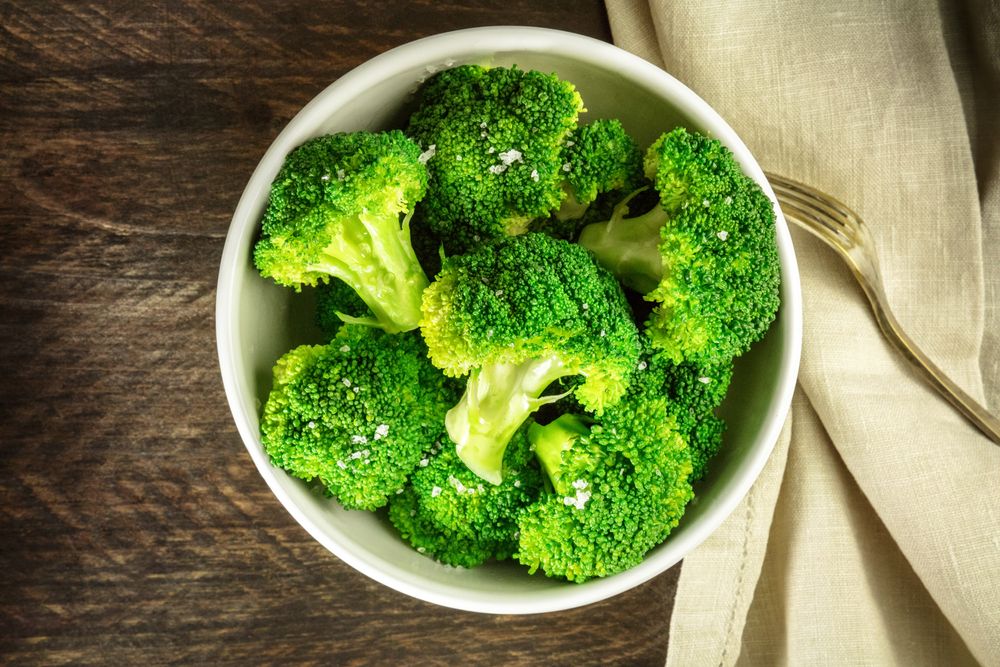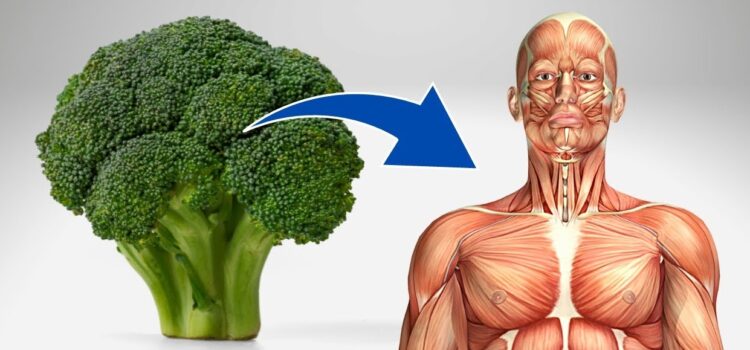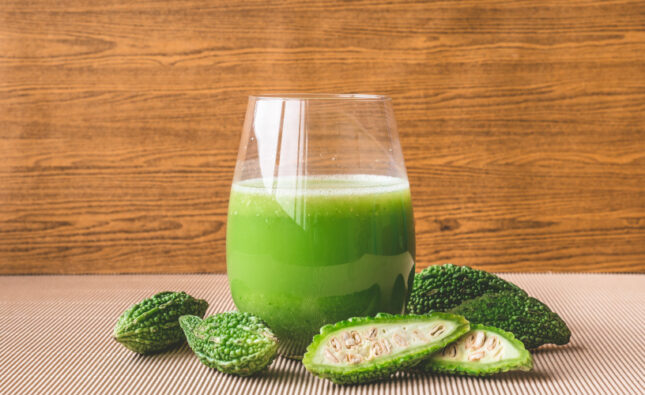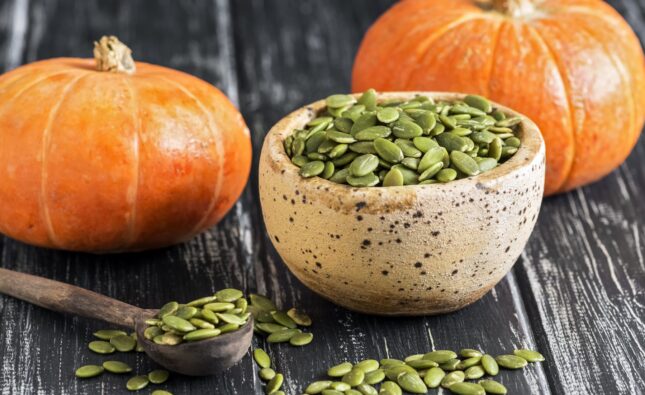Health Benefits of Broccoli & Its Nutrients Value
Broccoli, a green and vibrant cruciferous vegetable, has earned a reputation as a nutritional powerhouse due to its multitude of health benefits. Bursting with essential nutrients, broccoli is a favourite among health-conscious individuals and food enthusiasts alike. Packed with vitamins, minerals, fibre, and antioxidants, this vegetable offers a diverse array of advantages for overall well-being.
One of the most significant health benefits of broccoli lies in its potential to reduce the risk of certain cancers. Compounds like sulforaphane found in broccoli have been extensively studied for their anti-cancer properties. Regular consumption of cruciferous vegetables, including broccoli, has been linked to a decreased risk of prostate, breast, lung, and colon cancers, making it a valuable addition to a cancer-preventive diet.
Beyond its role in cancer prevention, broccoli also plays a vital role in promoting heart health. The fibre content aids in reducing cholesterol levels, while potassium supports healthy blood pressure levels, collectively contributing to improved cardiovascular function. By incorporating broccoli into their diet, individuals can take a proactive step towards safeguarding their heart health. For those seeking to maintain digestive health, broccoli is an ideal choice. Its fibre content aids in healthy digestion, prevents constipation, and supports a balanced gut microbiome. A healthy gut is essential for overall well-being, as it affects not only digestion but also immune function and mental health.
When it comes to bone health, broccoli proves to be a valuable ally. Rich in vitamin K, it supports calcium absorption, thereby fortifying bones and reducing the risk of osteoporosis. Including broccoli in a diet is especially beneficial for individuals at risk of bone-related issues, such as the elderly. Boasting an impressive dose of vitamin C, broccoli plays a pivotal role in supporting the immune system. Vitamin C strengthens the body’s defence mechanisms, helping fend off infections and illnesses, and promoting a robust immune response.
In addition to bolstering immunity, the antioxidants present in broccoli offer skin protection. Vitamins C and A help combat free radicals, which can cause skin damage, thereby promoting healthy and radiant skin. The advantages of broccoli extend to eye health as well. Lutein and zeaxanthin, two antioxidants found in this vegetable, are known to protect against age-related macular degeneration (AMD) and cataracts, making broccoli a beneficial addition to a vision-supportive diet. For those focused on weight management, broccoli is a smart choice. Low in calories but rich in fibre, it helps keep hunger at bay and provides satiety with fewer calories, aiding in weight loss or weight maintenance efforts.
Lastly, broccoli’s anti-inflammatory properties deserve recognition. Certain compounds in broccoli have been found to reduce inflammation in the body, potentially lowering the risk of chronic diseases associated with excessive inflammation. In conclusion, broccoli’s health benefits make it a true superfood. From cancer prevention and heart health to digestive support and immune enhancement, this versatile vegetable offers a wide range of advantages for individuals striving to lead a healthier lifestyle. By incorporating broccoli into a balanced diet, individuals can harness the power of this nutritional gem to promote their overall well-being and vitality. Here are some of the key health benefits of broccoli:
1. Rich in Nutrients:
Broccoli is packed with essential vitamins and minerals, including vitamin C, vitamin K, vitamin A, vitamin B6, folate, potassium, and manganese. It is also a good source of dietary fiber and contains small amounts of calcium and iron.
2. Antioxidant Powerhouse:
Broccoli is rich in antioxidants, such as sulforaphane, kaempferol, quercetin, and beta-carotene. These antioxidants help neutralize harmful free radicals in the body, reducing oxidative stress and lowering the risk of chronic diseases.
3. Cancer Prevention:
Studies suggest that the compounds found in broccoli, particularly sulforaphane, may have anti-cancer properties. They may help inhibit the growth of cancer cells and promote their destruction, potentially reducing the risk of certain cancers like breast, prostate, lung, and colon cancer.
4. Heart Health:
Broccoli’s high fiber content, along with antioxidants and anti-inflammatory compounds, supports heart health by reducing cholesterol levels, improving blood pressure, and reducing the risk of heart disease.
5. Digestive Health:
The fiber in broccoli aids in digestion and promotes a healthy digestive system. It can help prevent constipation and maintain a healthy gut environment.
6. Bone Health:
Broccoli is an excellent source of vitamin K and calcium, both essential for maintaining strong and healthy bones. Vitamin K plays a vital role in bone metabolism and can reduce the risk of osteoporosis.
7. Boosts Immunity:
Broccoli’s high vitamin C content strengthens the immune system, helping the body defend against infections and illnesses.
8. Eye Health:
The carotenoids lutein and zeaxanthin found in broccoli are beneficial for eye health, protecting the eyes from age-related macular degeneration (AMD) and cataracts.
9. Weight Management:
Broccoli is low in calories and high in fiber, which can aid in weight management by promoting a feeling of fullness and reducing overall calorie intake.
10. Anti-Inflammatory Properties:
Some compounds in broccoli possess anti-inflammatory properties, which may help reduce inflammation and lower the risk of chronic diseases linked to inflammation.
11. Detoxification Support:
Broccoli contains compounds that support the body’s natural detoxification processes, assisting in the elimination of harmful substances.
12. Skin Health:
The antioxidants in broccoli can help protect the skin from damage caused by UV rays and pollution, contributing to healthy and glowing skin.
Nutrient Value of Broccoli
Broccoli is a highly nutritious vegetable, rich in a variety of essential vitamins, minerals, fiber, and antioxidants. The nutrient value of broccoli per 100 grams (raw) is approximately as follows:
- Calories: 34 kcal
- Carbohydrates: 6.6 grams
- Dietary fiber: 2.6 grams
- Sugars: 1.7 grams
- Protein: 2.8 grams
- Fat: 0.4 grams
- Saturated fat: 0.1 grams
- Vitamins:
- Vitamin C: 89.2 mg (149% of the Daily Value – DV)
- Vitamin K: 101.6 mcg (127% DV)
- Vitamin A: 623 IU (12% DV)
- Vitamin B6: 0.175 mg (9% DV)
- Folate (Vitamin B9): 63 mcg (16% DV)
- Minerals:
- Potassium: 316 mg (9% DV)
- Calcium: 47 mg (5% DV)
- Magnesium: 21 mg (5% DV)
- Iron: 0.73 mg (4% DV)
- Antioxidants:
- Beta-carotene
- Lutein and Zeaxanthin

Broccoli’s high vitamin C content contributes to a strong immune system and acts as an antioxidant to protect cells from damage. Vitamin K is crucial for blood clotting and bone health. Vitamin A is beneficial for vision and skin health. Vitamin B6 is involved in various metabolic processes, including protein metabolism. Folate is important for DNA synthesis and cell division. The minerals in broccoli, such as potassium, calcium, magnesium, and iron, play vital roles in maintaining heart health, bone health, and overall cellular function.
Additionally, broccoli contains phytonutrients, such as sulforaphane, indole-3-carbinol, and glycosylates, which are responsible for its potential anti-cancer properties and other health benefits.
Overall, broccoli is a nutrient-dense vegetable that can be an excellent addition to a well-balanced and health-promoting diet. Its combination of vitamins, minerals, fibre, and antioxidants makes it a valuable food for supporting various aspects of health and well-being.






